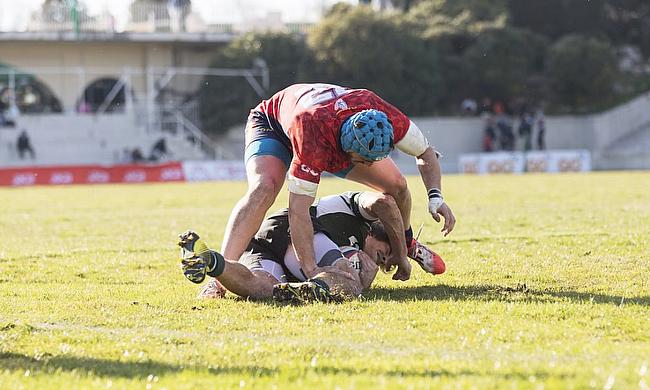Rugby as a space for emotions: from the tense battle to the joy of shared celebration
Rugby is not just a sport; it is a rollercoaster of emotions for millions of people. When the ball flies into your hands, the crowd whistles, and shoulders collide – in that moment, online betting odds can change within seconds.
But the true power of this kind of sport is not just in the scrums. After the match, players discuss the game they have seen to share their emotions, as if they have been a part of the action. Fans cheer the team, even if their favorites lose. That is the essence of the game, being part of something bigger than just the scoreboard.
The Emotional Crucible of the Game
Rugby is often called controlled chaos. It is a game where courage collides with pain, and strategy with pure instinct. As soon as the whistle blows, the field transforms into an arena where every meter is won with sweat and hard knocks. Fans freeze as the ball goes airborne, and the players seem to forget everything but the next rush.
A special tension is generated in the scrum. When two lines of forwards lock, the air literally trembles. It is not just a physical effort – it is a test of trust. One false step, and the entire structure collapses. In those seconds, the players hear not only the shouts of the coach but also the pounding of their own hearts.
Rugby is not just a battle of bodies; it's also a battle of minds. While studies are showing that this kind of sport changes the brain in a way that may increase the risk of dementia, for most people, it should have a positive effect on the way they think. A player carrying the ball toward the try line feels the breath of a defender on his back and internally decides whether to take a risk or pass. A setter preparing a kick at goal feels the weight of the entire team’s expectations. Moments like these reveal the true emotional power of sport.
There are a lot of different emotions produced by this game:
-
The tension and fear of contact.
-
The relief after a successful try.
-
The rage at an unfair whistle.
-
The pride in the team even when they are losing.
These are perfect examples of why people get excited for every match, as it leaves them with a mark on their souls.
The Heartbeat of Rivalry
The most intense emotions from this sport flare during derbies, when long-time rivals clash. Matches between New Zealand (All Blacks) and Australia (Wallabies) in the Bledisloe Cup or England and Wales in the Six Nations are not just games. They are stories intertwined with pride, memory, and old hatred. Fans prepare for weeks, and players take to the field as if the honor of their country depends on it.
Before kickoff, the air literally rings with tension. A missed attack evokes sighs of disappointment, while a well-aimed goal evokes a storm of joy. When the New Zealanders perform their famous «Haka», the stadium goes silent: some feel awe, others fear, but no one is indifferent.
And yet, there's a special nobility to rugby. After the final whistle, opponents shake hands, exchange glances, and exchange respect. Because in this sport they respect not only the victory, but also the struggle itself.
The Euphoria of the Try
The moment the ball is put into the end zone is an explosion of emotion, the reason both players and fans play. After tense scrums and endless passes, everything suddenly clicks: someone breaks the line, falls over the line with the ball, and the stadium erupts. Shouts, joy, hugs – those seconds when the whole team comes together.
The significance of a try always depends on the situation. Sometimes it decides the outcome of the match, like Jonny Wilkinson's famous try in the 2003 World Cup final. Even if a seemingly unpleasant situation occurs, when the team loses, the players still feel they've accomplished something great, something unpredictable.
Just like in other professional sports, athletes must put in a lot of effort to achieve truly good results. Teamwork is valued – a confident advance, a well-thought-out pass, carefully chosen timing. This tension, combining a multitude of emotions, is transmitted even to spectators watching the game live.
The Shared Celebration
Rugby’s emotional crescendo does not end with the final whistle. The sport’s culture of community and connection transforms individual moments of triumph into collective celebrations. Whether it is a local club match or an international final, rugby has a unique ability to bring people together in shared joy.
In the clubhouse, players and fans mingle, recounting the game’s highs and lows over a pint. These post-match gatherings are a ritual of reflection and bonding, where stories are swapped, and rivalries give way to laughter. The emotional intensity of the game finds its counterpoint in these moments of camaraderie, where the shared experience of rugby fosters a sense of belonging.
On a larger scale, rugby’s global events, like the Rugby World Cup or the Six Nations, unite entire countries. Streets are empty as fans gather in pubs, stadiums, or living rooms to watch their team. A victory can spark nationwide celebrations, as seen in South Africa’s 2019 World Cup triumph, which became a symbol of unity in a country with a complex history. Even in defeat, fans find solace in their shared passion, singing anthems like «Sweet Chariot» or «Flower of Scotland» with unwavering pride.
Rugby’s inclusivity adds another layer to its emotional appeal. The sport welcomes players of all shapes, sizes, and backgrounds, from hulking forwards to nimble wingers. This diversity is mirrored in its fanbase, which spans generations, cultures, and continents. Whether it’s a village match in rural England or a packed stadium in Auckland, rugby creates a space where everyone can share in the emotional highs and lows.


